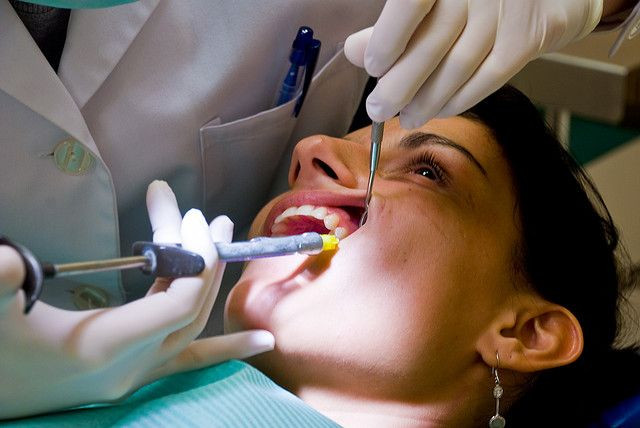Odontophobia: Fear Of The Dentist Can Be Lessened Through Cognitive Behavior Therapy

Up to 15 percent of Americans skip going to the dentist because they suffer from something called odontophobia, a fear of the dentist. Skipping the dentist is a bad idea though; poor dental health can lead to cancer, heart disease, and atherosclerosis, all of which are worse than a visit to the dentist’s office. Fortunately, there’s cognitive behavioral therapy (CBT), which may help these people overcome their fear and receive the dental treatment they most likely need.
A phobia is an almost debilitating anxiety disorder that causes people to go to great lengths to avoid what they’re most afraid of. CBT had previously been used on other anxiety disorders and depression because, according to Mayo Clinic, it “helps [people] become aware of inaccurate or negative thinking so [they] can view challenging situations more clearly and respond to them in a more effective way.” For this reason, researchers from King’s College London were interested in seeing if it would be a useful treatment for people with odontophobia.
For their study, published in the British Dental Journal, researchers brought together 99 women and 31 men between 16 and 91 years old, all of whom were taking part in a CBT service run by the King's College London Dental Institute Health Psychology Service. Each participant was monitored for levels of dental anxiety, oral health-related quality of life, general levels of anxiety, depression, suicidal thoughts, and alcohol use.
To measure participants’ levels of dental anxiety, the researchers used the Modified Dental Anxiety Scale (MDAS), which asks five questions about their anxiety regarding everything from an upcoming appointment to receiving local anesthesia. Answers range from “not anxious” (1) to “extremely anxious” (5). Once the patients answered the questions, their numbers were tallied, and anything higher than 19 was categorized as odontophobia.
Out of the 130 participants involved in the study, 77 percent scored 19 or higher on the MDAS. The rest scored high on specific MDAS questions, suggesting to researchers that they feared certain aspects of their visit — fear of the dental drill or injections were feared the most. Ninety-four percent of the participants also reported gum, tooth, or mouth problems affected some aspect of their daily lives. Aside from odontophobia, many of the participants also suffered from other psychological disorders; 37 percent had high levels of general anxiety, 12 percent reported significant levels of depression, and four patients recently tried committing suicide.
After collecting their data, the researchers found that 12 participants were unsuitable for CBT because of “the presence of comorbid psychological difficulties such as suicidal ideation or intent and/or excess alcohol use or depression, which were judged to take precedence for treatment over their dental fear,” the researchers wrote. Seven more participants dropped out of the program completely. For the remaining 111 participants, 103 were able to get through a dentist’s appointment without the need for sedation after only five sessions of CBT.
Being able to get participants into and out of a dentist’s chair without sedation is significant. “People with dental phobia are most commonly given sedation to allow them to become relaxed enough for a short period of time to have their dental treatment performed,” lead author of the study Professor Tim Newton said in a press release. “However, this does not help them to overcome their fear in the long term. The primary goal of our CBT service is to enable patients to receive dental treatment without the need for sedation, by working with each individual patient to set goals according to their priorities.”
Source: Newton T, et al. Characteristics of patients attending for cognitive behavioural therapy at one UK specialist unit for dental phobia and outcomes of treatment. British Dental Journal. 2015.



























